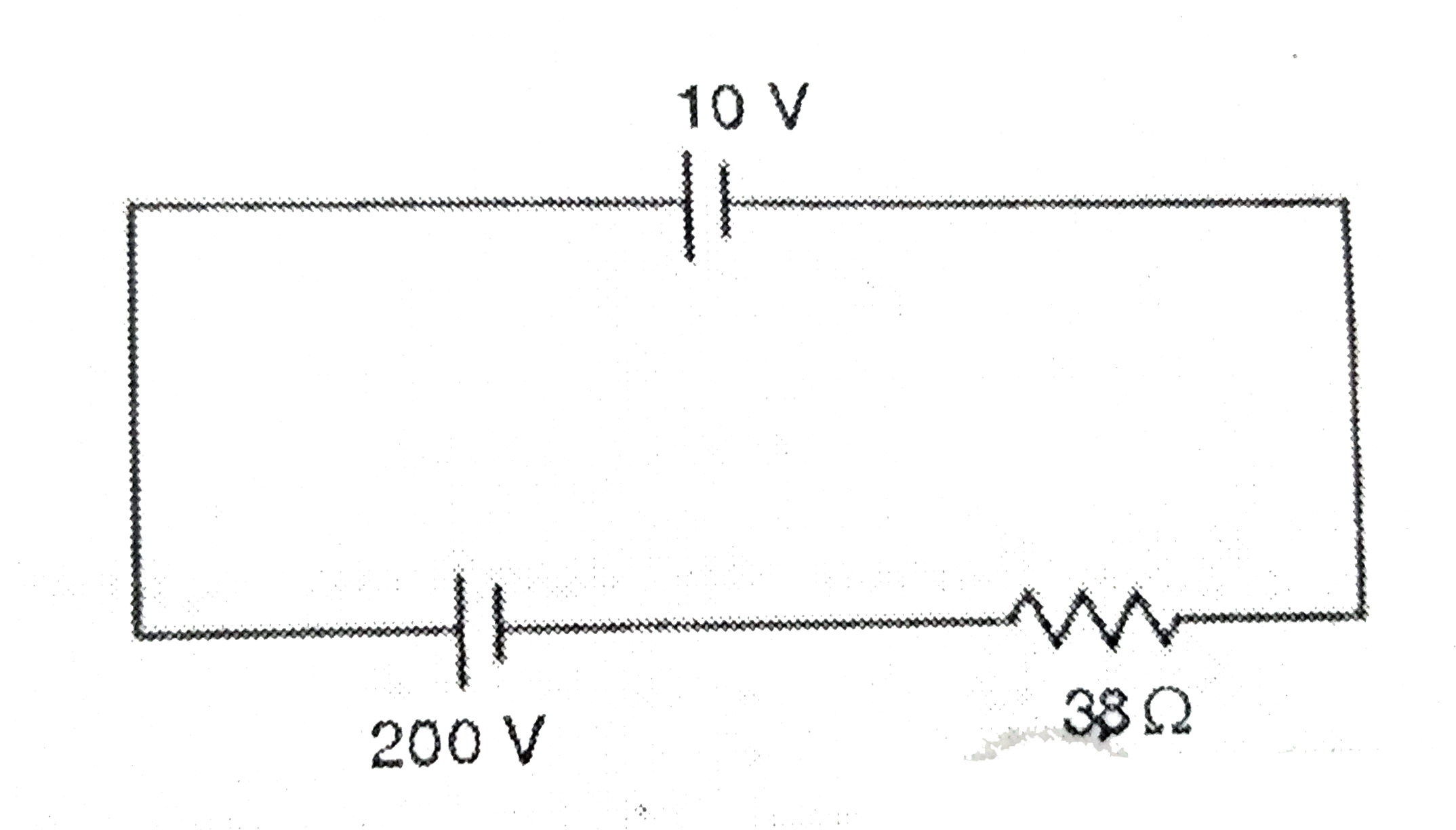An inductor coil stores 16 joules of energy and dissipates energy as heat at the rate of 320W when a current of 2 Amp is passed through it. When the coil is joined across a battery of emf 20V and internal resistance 20Ω the time constant for the circuit is τ. Find 100τ ( in seconds).
The correct Answer is:8
To solve the problem step by step, we will follow the given information and apply the relevant formulas.
Step 1: Calculate the Inductance (L)
We know that the energy (U) stored in an inductor is given by the formula:
U=12LI2
Where:
- U=16J (energy stored)
- I=2A (current)
Substituting the values into the formula:
16=12L(22)
16=12L(4)
16=2L
Now, solving for L:
L=162=8H
Step 2: Calculate the Total Resistance (R)
We know that the power (P) dissipated in the circuit can be expressed as:
P=I2R
Where:
- P=320W (power dissipated)
- I=2A (current)
Substituting the values into the formula:
320=(22)R
320=4R
Now, solving for R:
R=3204=80Ω
Step 3: Calculate the Net Resistance
The net resistance in the circuit includes the internal resistance of the battery and the resistance calculated above:
- Internal resistance Rinternal=20Ω
- Resistance from power calculation R=80Ω
Thus, the total resistance Rnet is:
Rnet=R+Rinternal=80+20=100Ω
Step 4: Calculate the Time Constant (τ)
The time constant τ for an inductor is given by:
τ=LRnet
Substituting the values we found:
τ=8100=0.08s
Step 5: Calculate 100τ
Finally, we need to find 100τ:
100τ=100×0.08=8s
Final Answer
Thus, the value of 100τ is:
8
We know that the energy (U) stored in an inductor is given by the formula:
U=12LI2
Where:
- U=16J (energy stored)
- I=2A (current)
16=12L(22)
16=12L(4)
16=2L
Now, solving for L:
L=162=8H
We know that the power (P) dissipated in the circuit can be expressed as:
P=I2R
Where:
- P=320W (power dissipated)
- I=2A (current)
320=(22)R
320=4R
Now, solving for R:
R=3204=80Ω
The net resistance in the circuit includes the internal resistance of the battery and the resistance calculated above:
- Internal resistance Rinternal=20Ω
- Resistance from power calculation R=80Ω
Rnet=R+Rinternal=80+20=100Ω
The time constant τ for an inductor is given by:
τ=LRnet
Substituting the values we found:
τ=8100=0.08s
Finally, we need to find 100τ:
100τ=100×0.08=8s
Thus, the value of 100τ is:
8
Similar Questions
An inductor coil stores 32 J of magnetic field energy and dissiopates energy as heat at the rate of 320 W when a current of 4 A is passed through it. Find the time constant of the circuit when this coil is joined across on ideal battery.
View SolutionAn inductor coil stores U energy when i current is passed through it and dissipates energy at the rate of P. The time constant of the circuit, when this coil is connected across a battery of zero internal resistance is
View SolutionA coil of self inductance 2.5 H and resistance 20Ω is connected to a battery of emf 120 V having internal resistance of 5Ω. Find :
The time constant of the circuit
View SolutionCalculate the energy stored in an inductor of inductance 50 mH when a current of 2.0 A is passed through it.
View SolutionFig. shows two resistors A of 4Ω and B of 6 Ω joined in series to a battery of e.m.f. 12 V and internal resistance 2 Ω . Calculate :

the current in circuit,
View SolutionAn inductor coil carries a steady state current of 2.0 A when connected across an ideal battery of emf 4.0 V. if its inductance is 1.0 H, find the time constant of the circuit.
View SolutionA battery of emf 2V and internal resistance 0.5(Ω)is connected across a resistance 1.5(Ω). Find the current flow through battery ?
View SolutionA coil of self inductance 2.5 H and resistance 20Ω is connected to a battery of emf 120 V having internal resistance of 5Ω. Find :
The current in the circuit in steady state.
View SolutionA 10 V cell of neglible internal resitsance is connected in parallel across a battery of emf 200 V and internal resistance 38Ω as shown in the figure. Find the value of current in the circuit.

View SolutionA coil of inductanece 5H is joined to a cell of emf 6V through a resistance 10Ω at time t=0. The emf across the coil at time t=ln√2 s is:
View Solution